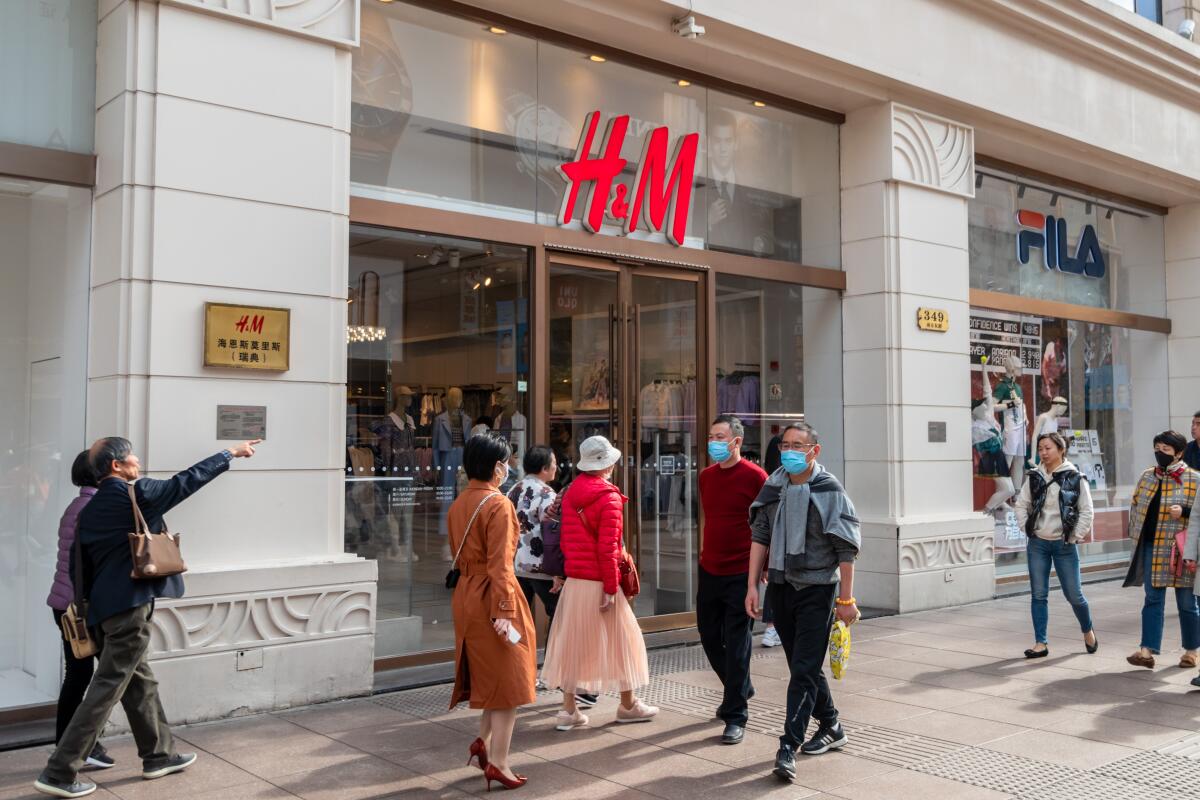Op-Ed: How China’s bullying threatens its own economic future

The Chinese government rolled out its 14th Five-Year Plan in early March, one that will prioritize growth based on domestic demand and technological self-sufficiency. The strategy lays out a long-term economic vision to enable China to thrive, despite the country’s geopolitical contest with the United States.
But before the ink on the new plan could dry, China had already begun sabotaging the plan’s chances of success.
China has been laying the groundwork for this strategy for a while. At the end of last year, President Xi Jinping concluded the Comprehensive Agreement on Investment with the European Union. He had to make some concessions to get there, but it was worth it: The deal had the potential not only to deepen EU-China ties, but also to drive a wedge between Europe and the U.S.
But Xi is now undermining his own good work, by poisoning relations with critical trading partners. Over the last couple of weeks, China has blacklisted several members of the European Parliament, British and Canadian lawmakers, and academics and research institutions in Europe and the United Kingdom.
The sanctions are retaliation against sanctions imposed by the EU, Britain and Canada on a small number of Chinese officials who are implicated in human rights abuses against the Uyghurs in Xinjiang province. Recent reports about the use of forced Uyghur labor in cotton production have intensified the concern.
China wants to display its anger at these accusations. But the message sent by its sanctions is unlikely to be worth the cost.
Canada, Europe and Britain have so far remained relatively neutral in the U.S.-China rivalry — and it is in China’s interests that they stay that way. China can afford an economic decoupling with the U.S. (though it will be costly). It cannot afford a simultaneous decoupling with the rest of the major Western economies.
Already, the agreement with the EU, which still needs to be approved by the European Parliament, is under threat. The Parliament canceled a recent meeting to discuss the pact.
Further undermining its economic prospects, China is attacking private corporations for having expressed concerns over forced-labor allegations. Last year, the Swedish apparel retailer H&M announced that it would no longer use cotton sourced in Xinjiang, because it was too difficult to conduct “credible due diligence” there.
In response, China’s leading e-commerce companies have pulled H&M products from their platforms, and Chinese celebrities have canceled deals with the brand. And, encouraged by state media, a movement to boycott H&M — as well as other Western brands that refuse Xinjiang cotton, including Nike, New Balance, and Burberry — is gathering steam.
China seems confident that its bullying tactics will succeed. After all, Western multinationals don’t want to be driven out of China, an important growth market. And, indeed, H&M has already released a new statement highlighting its “long-term commitment” to China and expressing its dedication to “regaining the trust and confidence” of its “customers, colleagues, and business partners” there.
But as Western multinationals want to sell their goods to Chinese consumers, Chinese firms need these companies to keep sourcing materials from them. These are mutually dependent relationships.
Moreover, while the size of China’s market may be appealing enough to draw concessions from multinationals, it is not worth jeopardizing their reputations in the West, which still accounts for the majority of their revenues. For example, H&M’s top two markets are the U.S. and Germany. China accounted for about only 5% of its total revenue in 2020. Getting kicked out of China may not be pleasant for H&M and other Western multinationals, but these deep-pocketed firms can absorb the loss.
In other words, H&M can afford to lose access to the Chinese market. But its hundreds of suppliers may not be able to afford losing H&M as a buyer.
An exodus of Western multinationals from China would inevitably force the supply chains that serve them to move as well, resulting in the closure of Chinese factories and the loss of millions of jobs.
There is still time for China’s government to reverse course. That means, for starters, allowing independent experts to conduct an investigation of cotton farms in Xinjiang. If China really isn’t using forced labor, this is the best way to prove it — and improve relations with Western businesses and governments.
But such a sensible response seems unlikely. China’s leaders remain convinced that its market is simply too important to abandon. Of course, not too long ago, they were absolutely certain that the U.S. could not afford an economic decoupling from China. They were wrong then, and they may well be wrong now. The difference is that this time China cannot afford a decoupling, either.
Minxin Pei is a professor of government at Claremont McKenna College and a nonresident senior fellow at the German Marshall Fund of the United States.
More to Read
A cure for the common opinion
Get thought-provoking perspectives with our weekly newsletter.
You may occasionally receive promotional content from the Los Angeles Times.










